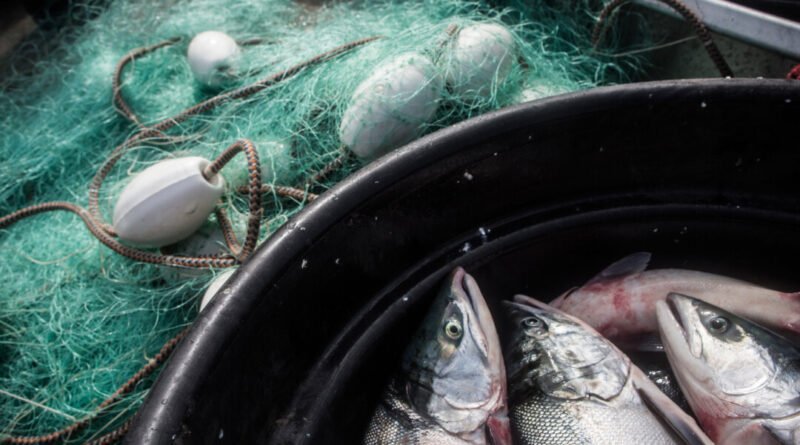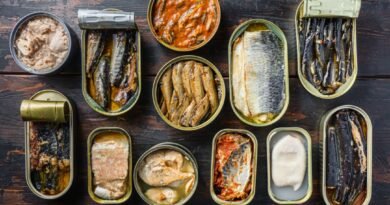Biden Administration secures victory in subsistence fishing dispute with Alaska
The state vowed to fight the decision to the highest court if necessary.
A federal judge has rejected Alaska’s attempt to expand subsistence fishing beyond boundaries set by the federal government, confirming federal authority over the state’s water management.
In a ruling on March 29, U.S. District Court Judge Sharon Gleason permanently blocked Alaska from issuing orders that would contradict federal management decisions aimed at conserving fish for a small group of rural residents.
The disagreement arose in 2021 when Chinook salmon runs on the Kuskokwim River reached record lows. Due to declining salmon populations, the Federal Subsistence Board and other federal officials imposed a fishing ban on a 180-mile stretch of the Kuskokwim River within the Yukon Kuskokwim Delta National Wildlife Refuge.
Under the federal order, this section of the river was closed to non-subsistence harvest and only open to “federally qualified” subsistence fishermen from rural villages. This decision effectively excluded many Alaska Natives living in urban areas from accessing the fisheries. About two-thirds of Alaska Natives reside in the state’s urban cities.
The federal orders clashed with those issued by the Alaska Department of Fish and Game, which periodically opened the Kuskokwim River for subsistence fishing to all state residents, not just a select few.
Following similar disputes the next year, the Biden administration in 2022 filed a lawsuit against Alaska under the Alaska National Interest Lands Conservation Act, or ANILCA. This law from 1980 mandates that during scarcity times, rural residents’ harvests of fish and game must be given priority.
This priority has been reinforced by three court rulings known as the Katie John cases. These rulings allowed the federal government to take control of fisheries management in rivers above state-owned riverbeds to enforce the rural subsistence preference under ANILCA.
However, the state highlighted a U.S. Supreme Court ruling from 2019 in favor of John Sturgeon, an Alaska hunter who was using a hovercraft on a river within a federal wildlife preserve where such vehicles were prohibited by the National Park Service. In the Sturgeon case, the Supreme Court affirmed that “navigable waters” are state-owned and exempt under ANILCA.
“The Kuskokwim River is a navigable waterway,” stated the Alaska Department of Law. “The federal government has disclaimed any interest in the submerged lands under the river sections in question in this case. Therefore, the river is not public land under ANILCA.”
In her 29-page decision, Judge Gleason rejected the state’s argument, stating that the Supreme Court’s ruling in Sturgeon does not override the Katie John precedents.
“The Court is therefore bound by the Katie John trilogy of cases to determine that [ANILCA’s] rural subsistence priority applies to navigable waters where the United States holds reserved water rights,” she wrote, confirming that the Biden administration lawfully designated the Kuskokwim River in the Refuge as a navigable water subject to [ANILCA].
In 2022, Judge Gleason issued a temporary injunction preventing Alaska from issuing conflicting orders. Her latest ruling has made it permanent.
“Allowing a state to enforce a regulation that is preempted by federal law in violation of the Supremacy Clause is neither equitable nor in the public interest,” wrote the judge appointed by Obama.
Alaska AG: Feds Sue State For Managing Its Own River
In response to the ruling, Alaska Attorney General Treg Taylor expressed disappointment that the federal court did not acknowledge the conflict between the U.S. Supreme Court decision in the Sturgeon case and the federal actions in this case.
“We always expected this case to reach the highest court for a final decision,” said Mr. Taylor. “The state intends to appeal.”
In a published op-ed last September, Mr. Taylor criticized the Biden administration’s “repeated attempts to take control of the Kuskokwim River and its fish,” arguing that the state has the right to manage its natural resources for the benefit of all residents.
“The federal action seeks to criminalize fishing on the Kuskokwim for most Alaskans,” he noted, pointing out that urban Alaska Natives are no longer allowed to return to the Kuskokwim region and support their families in cultural subsistence needs.
“Federal management also harms Alaska families living upstream of the Yukon Delta National Wildlife Refuge,” Mr. Taylor added, accusing the federal government of preventing enough fish from reaching these families despite the state’s efforts to close the fishery on certain days to allow fish to migrate upstream.
“In essence, federal management benefits a few individuals in a limited geographical area at the expense of others and at the risk of future sustainability,” he concluded.






